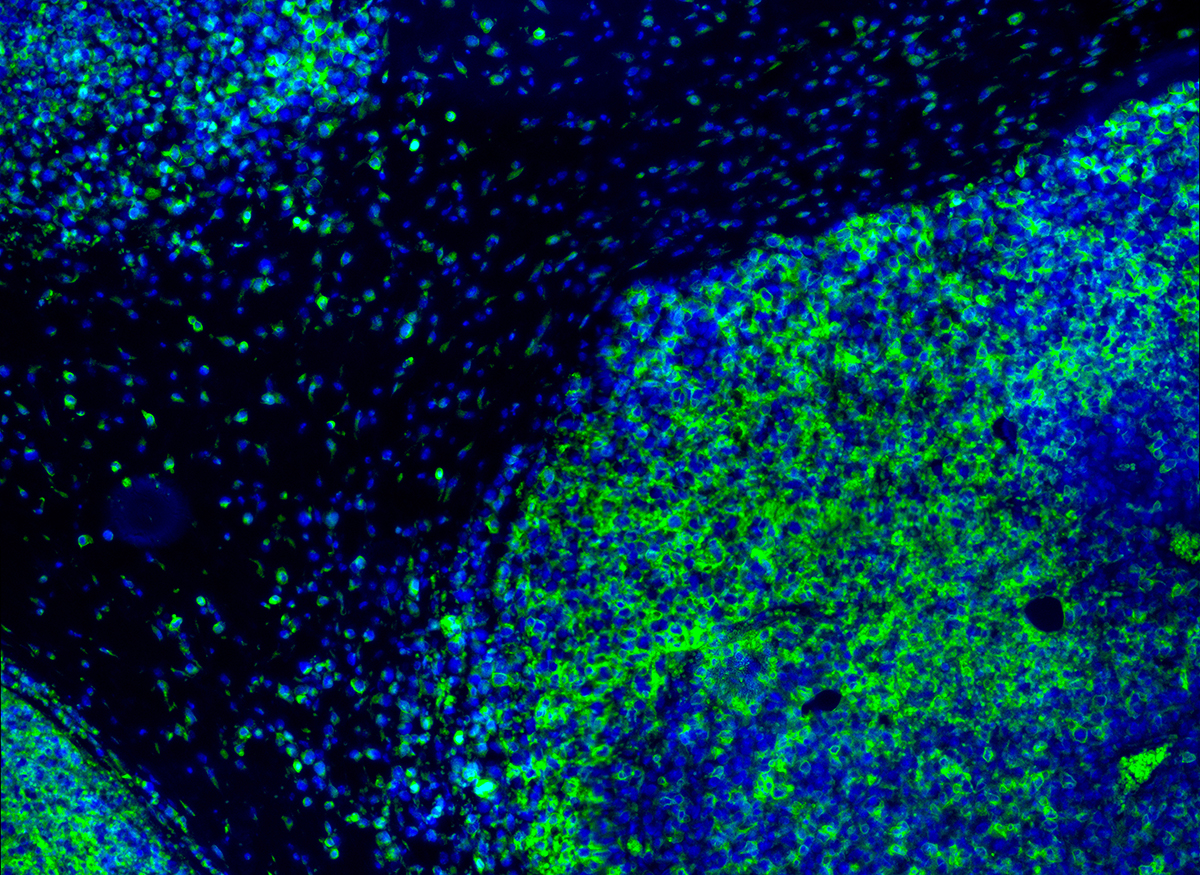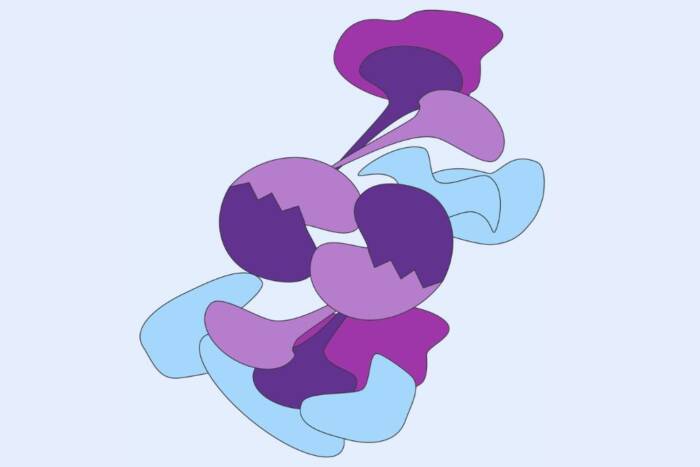Study explains why checkpoint inhibitors so adept at fighting cancer may also leave patients vulnerable to infections

An immunofluorescence IHC image of T cells (green) attacking tumor cells (blue) (Shutterstock / DrimaFilm)
People with cancer now have a multitude of treatment options beyond chemotherapy and radiation. One such advanced approach, called immune checkpoint inhibitor therapy, enables immune cells called T cells to attack tumors and cancer cells far more effectively. But 20% of patients who receive this therapy develop a dangerous side effect: an increased chance of microbial infection. Why has remained poorly understood.
New findings from a multinational research collaboration including Rockefeller University reveal a potential explanation for this downside to an otherwise effective cancer treatment. The therapy, it turns out, is a double-edged sword for patients who have an immune deficiency impacting B cell function: For them, the therapy inhibits the body’s ability to produce pathogen-fighting antibodies. The results were published(opens in new window) in the journal Immunity.
“These findings may lead to new approaches to checkpoint inhibitor treatments that maintain their powerful anti-cancer effects without undermining the immune system’s ability to defeat microbes,” says senior co-author Jean-Laurent Casanova, head of the St. Giles Laboratory of Human Genetics of Infectious Diseases(opens in new window) at Rockefeller University, which collaborated on the research with the Garvan Institute of Medical Research in Australia and Kyoto University Graduate School of Medicine in Japan.
Suppressed B cells
Checkpoint inhibitor therapies work by releasing a molecular “handbrake” called PD-1, a protein that naturally prevents the overactivation of T cells. Lifting the brake enhances the immune system’s ability to fight cancer.
For the study, researchers examined the blood and immune cells of patients from two families with a genetic deficiency of either PD-1 or its binding partner PD-L1. Because PD-1 is also expressed on B cells—the long-lived immune cells that “remember” past infections—the researchers investigated its impact on these antibody manufacturers. They found that impaired or absent PD-1 activity can significantly reduce the diversity and quality of antibodies produced by memory B cells.
“This deficiency made it harder to generate high-quality antibodies against common pathogens such as viruses and bacteria,” says first author Masato Ogishi. Currently a postdoc at Stanford University, Ogishi conducted the research in Casanova’s lab as Ph.D. student.
“This dampening of the generation and quality of memory B cells could explain the increased rates of infection reported in patients with cancer receiving checkpoint inhibitor therapy,” adds Stuart Tangye, co-senior author and head of the Immunology and Immunodeficiency Lab at the Garvan Institute.
A potential intervention
The researchers say the findings highlight the need for clinicians to monitor B cell function in all patients receiving checkpoint inhibitors, says co-senior author Stéphanie Boisson-Dupuis, a geneticist in Casanova’s lab. “Clinicians need to be aware of the potential trade-off between enhanced anti-tumor immunity and impaired antibody-mediated immunity.”
They also should consider the use of preventative interventions for those at higher risk of infections, she adds. One potential solution is intravenous immunoglobulin replacement (IVIG) therapy, which is used to replace missing antibodies in patients with immunodeficiencies.
Casanova notes that the findings provide yet another example of how the study of rare diseases can lead to insights that benefit the broader population.
“This research started with our discovery of just two families with similar inherited deficiencies, and yet as a result we’ve learned that PD-1 and its ligand PD-L1 are physiologically essential for all human B cells to produce antibodies against microbes,” he says.



